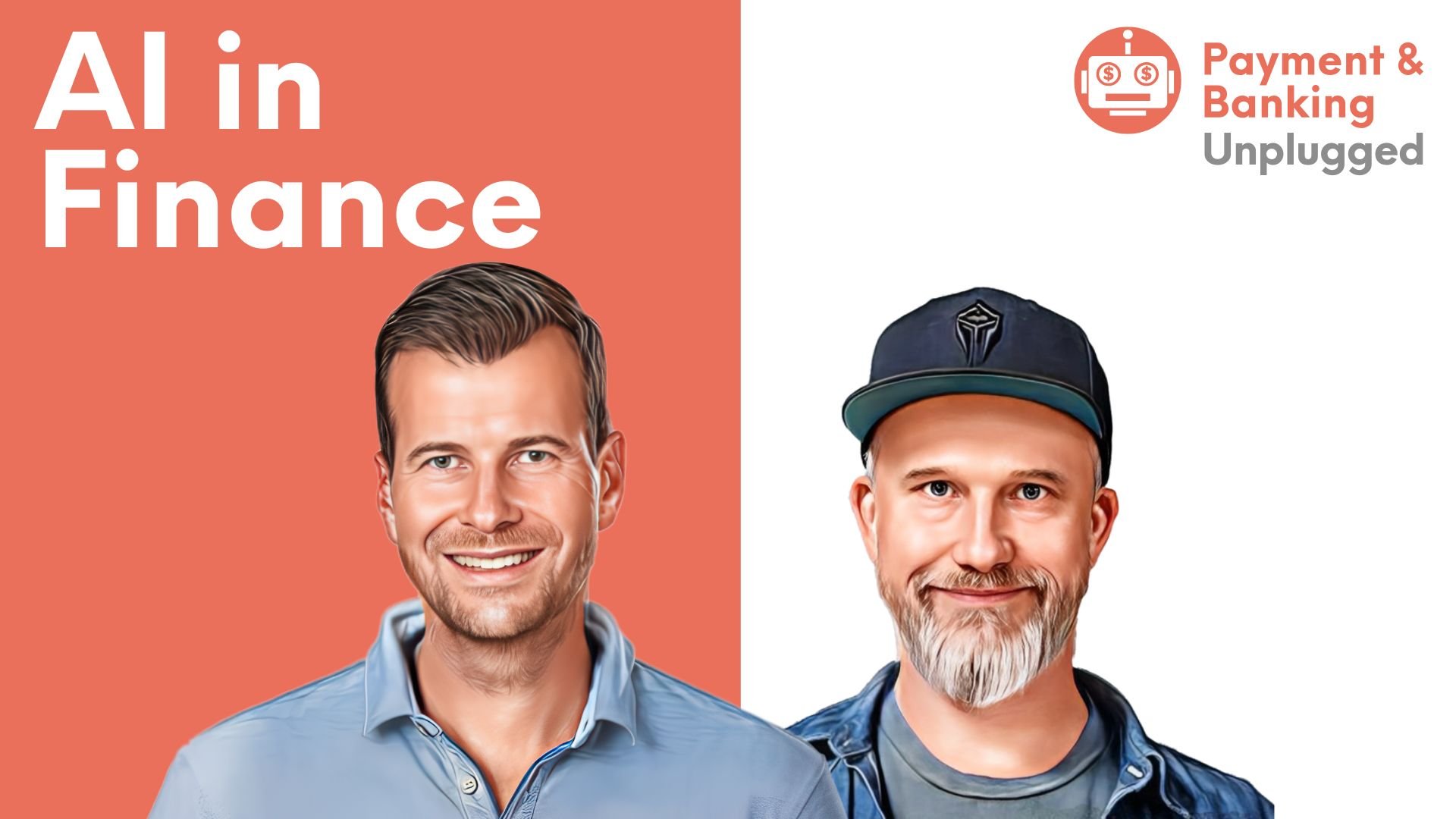May we introduce: Mark Rosiefsky from staxter
Working in the FinTech industry is like coming and going, requires a high degree of professionalism in a thoroughly relaxed working environment and is above all characterised by innovation as well as good, clever and future-oriented ideas, according to the widespread consensus. But who are actually the brains and movers behind these creative thought processes, at the intersection of finance, digital technologies and entrepreneurship? In our series: The Faces of FinTech, we regularly ask one person from the payments and banking industry the same ten questions. This time Mark Rosiefsky answers our questions.
May we present…
In the course of our day-to-day work, we frequently encounter exciting people who work in the same field, who we meet only once or every now and then, or who have even grown very fond of us privately – each of them has a story of their own. We interviewed a few of these people from our closest FinTech environment to put a face to them. To share why this industry is much more to them than just another way to pay his rent. We would like to briefly portray and introduce these people and their vita in a category of their own and have designed a questionnaire that is always the same.
This time answered Mark Rosiefsky our questions. Mark is the CEO and co-founder of the Frankfurt-based Fintech staxter.
Who are you, what do you do?
Before founding staxter, I worked as an investment banker, hedge fund manager, and investor around the world. During my life and work in Hong Kong, I was convinced that developing a platform where various financial transactions and services can be done easily, regardless of language, would benefit people around the world.

Thus, in 2016, I founded staxter with the goal of creating a financial services multi-purpose app (super app) that allows all users to buy, give, transfer, pay, manage, store and interact with each other within the same platform at low cost and fair prices.
staxter is like a good friend who is always there when you need him without being intrusive. I believe that not a single day goes by without having an impact on our environment and the world that surrounds us. My goal is to provide a better smartphone-, app-, and banking- experience for our customers; through, among other things, socially interactive banking that is particularly attuned to the underserved population in this regard. With staxter, users are in control of their daily financial lives 24/7, without having to switch to another app or service provider. In just a few weeks, they will also be able to use a simple and easy-to-understand banking experience that overcomes language and comprehension barriers and also can make mobile purchases of top-ups, vouchers and codes in seconds, with no fees.
What does a classic day in your life look like?
I usually get up at 5:30 a.m. and plan my day to make sure that the most urgent work gets done first. After that, I do sports and have breakfast with my family. Then I have a meeting with my team to discuss the projects and upcoming activities in the company. As a coach and as a CEO, it is important for me to stay visible to my team and show them that every employee is a valued member. I believe that an essential part of building a successful company is creating a culture that is productive and fun.
A large part of my workday consists of developing and planning customer-facing products, concepts, and services, as well as networking. In the evening, I enjoy spending time with my family. As the day draws to a close, I take the opportunity to retreat from the tech world, this is one of the best ways for me to brainstorm and innovate. I love reading the latest books and magazines. In our ever-changing world, it is important for me to be a part of that change myself.
What was your first contact with the payment and banking industry?
That was a long time ago! As a pupil I did an internship at the Bremer Bankverein and in this context, I was also at the Bremer Stock Exchange. Since then, banking has accompanied me through my life.
When did you first notice the word FinTech?
The word itself could be heard a very long time ago, which reminds me how long I am in this business, however, things within the fintech landscape have changed dramatically since the term was first introduced.
How do you define FinTech?
To me, FinTech is a combination of two worlds, a term we like to use when we talk about new and emerging technologies that are impacting the delivery of financial services in newer, better, and faster ways than has been the case in the past. Perhaps we can think of the difference between walking into a bank to open an account and being able to open it in a few minutes in real-time on your phone while you are on vacation in another country, and we all get a good idea of the impact of FinTech.
Everything that makes consumers‘ lives easier, from being able to go online and see their financial transactions, to apps that let you shop, pay, top-up phones, send money to friends, to tools that allow financial institutions to make quick credit decisions, is part of the evolution of financial services. Fintech will make the financial segment faster, available everywhere and independent of location, thus available to everyone. The boundaries of services and products will no longer be regional, but globally available everywhere.
„Everything that makes consumers‘ lives easier is part of the evolution of financial services.“
Cost-based competition will be global and thus tougher. Consumers will no longer be close to product brands and institutions, but to the user interface, the hub for products and services.
Ultimately, FinTech will enable businesses and consumers to take control of their financial lives and better understand, plan, and control them. I believe the visible complexity and technology will disappear in favour of a user-friendly, simple and easy-to-understand application platform.
What do you think established companies do better than FinTechs?
Established companies operate with different dynamics and they rely on the very strong existing relationships that have been in place for many years. Unlike fintech, traditional banks can still utilize the possibilities of in-person relations at branch offices to improve relationships with clients and at the same time develop their digital strategies based on direct customer input. While fintech companies are usually innovative startups looking for adequate support, big banks already have resources to better position themselves in this new digital era by investing in emerging technologies — such as mobility, artificial intelligence, machine learning, and big data analytics which helps them to develop a deeper and broader understanding of what each client wants from solutions that address the different segments of their financial lives. I guess, also this will change soon if the established companies are not acting now. On the other hand, I see a lot of cooperation possibilities between old and new in the future; could be magic win-win for both as well as for the customer.
What can you learn from FinTechs?
Based on our company and the example, and considering my experience in traditional banks, fintechs have tremendous advantages. They bring simplicity, innovation, fresh services, and new technologies swiftly to the public at large. They are easily scalable, and accessible in a short period. However, we should not forget that Fintech organizations need to keep the customer experience top of mind. It’s all too easy to lose sight of what your customers are truly looking for when upgrading to new tech possibilities. When optimizing and upgrading, we should never be blinded by technology but should listen and respond to our clients’ needs. Skilled fintech companies are aware of this.
Why do established (large) companies have such a hard time with digitalization?
Successful corporate digital transformations start with leaders and management recognizing and embracing technology that became particularly important during the pandemic. Acknowledgment that digitalization is the only way forward, sends a clear message to the rest of the organization that the company is serious about implementing changes.

If digital transformation is done right, and in cooperation with skilled tech companies, it better moves down throughout the company to all employees. Becoming a digital organization thus requires leadership skills combined with connecting people, processes, and data. Adopting today’s technologies is no longer optional, the businesses with the best technologies will simply win because they will have agility and cost efficiencies that others who are not fast enough will not have.
What makes your job interesting daily?
The most interesting part of this job is that there is no typical day. Leading the start-up impacts that every day calls for efficiency, I try my best to reach that level. For a startup to succeed, it’s not enough to have a good business idea. Resilience, dedication, passion, flexibility, focus, trust, and people skills are just as important for success. We should not forget social responsibility which should be an integral part of each business. We at staxter are developing socially inclusive banking, and there are more challenges in this concept as we are trying to find the best ways to provide innovative services to all people. I find our approach and extensive work on it interesting and motivating.
What would you do for a living if you didn’t work in the payment and banking industry?
Maybe I would be a Chef with my own restaurant, as I love to be creative in the kitchen and to work with fresh, seasonal, and organic food.
What are you proud of?
I am very proud of my kids. They inspire and surprise me every day. One can only learn from how they deal with these challenging times and be proud of them.
Why aren’t there more women in the tech industry?
There are lots of exceptions, and the fintech scene is rapidly changing in this regard, but one must admit that there are a significant number of male founders who come from male-dominated backgrounds and jobs. All-boys schools in childhood, traditionally male university degrees (tech, science, economics, engineering), and male cultures in banks strongly impact the fintech world.
What company would you like to work at for a day?
I am happy with what I am doing. What I would like, however, is more time to focus more intensively on my social commitment.
Who would you like to have a beer with?
Bill Gates – an exceptional person and an insanely clever mind with a high level of social commitment.



